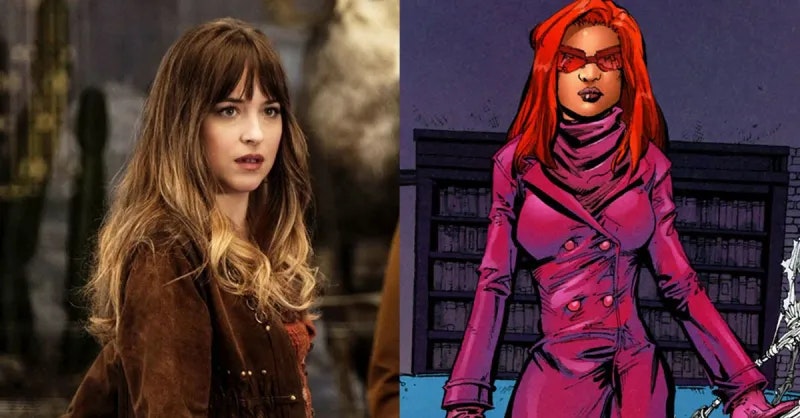You thought superhero movies had hit bottom when The Marvels came out last year, but Brie Larson and the other stars of that film received the sweetest possible Valentine just last week in the form of Madame Web, a superhero movie so lame (a 3.6 out of 10 average critics score last time I checked) that it just might make people forget about The Marvels.
Both films are tragic: several charismatic actresses are wasted in each. Each film had some good moments and could’ve been salvaged with simple rewrites and reshoots (can anyone out there really explain how/why/when Carol’s Kree quantum bands and Kamala’s Noor extradimensional genes are connected to Monica Rambeau’s light powers in The Marvels?). And neither film is as left-wing or speechifying as you’d expect from listening to some of the amateur critics’ overreactions.
But they’re bad movies—a lot like, in the case of Madame Web, a bland but acceptable two-hour pilot for a TV series that will never exist, a series that would eventually have shown a lot more of the characters’ superpowers if it did, like a slow-building and very low-budget CW show. I really think the wisest way for Sony to recoup on its investment once they knew they had a turkey on their hands, though, would’ve been to emphasize Dakota Johnson, Sydney Sweeney et al in skintight rubber and try overtly marketing it to the cosplay fetishists (the blindness shades, the entangling webbing, etc.).
Movies like this are the sort of thing that makes one think many movies (and other art projects) must be made for some strange, unstated purpose such as money-laundering, technical rights-retention requirements, sex trafficking of the female stars, or fulfillment of occult ritual requirements. Might Sony secretly want to sabotage Marvel characters so they can drive down the price of Disney stock and buy that rival studio?
As it stands, there must’ve been many casual viewers who saw the ads for Madame Web and didn’t even know it was a “real’ Spider-Man movie, probably assuming it was some cheap knock-off, like those unauthorized Star Wars films from Turkey or Mexico we’ve all laughed at condescendingly. And in some sense, that’s exactly what the Sony Spider-Man spinoffs usually are (their excellent animated Miles Morales films notwithstanding).
Desperate to compensate with some “grim and gritty” cred—like a couple of generations now of superhero fans weaned on the works of Frank Miller, Alan Moore, Tim Burton, Christopher Nolan, the failed DCEU decade of films, Todd Phillips, and soon the strange collaborations of James Gunn and traumatized former military intelligence man Tom King—Madame Web starts with the jarring murder of a mom-to-be by a ruthless Latin American gunman out to steal de facto pharmaceutical secrets from the Amazon, but it’s all pretty much standard chase sequences in and around Manhattan for the subsequent two hours, an ambulance here, some wall-crawling or psychic flashes of the future there, nothing worth leaving home for.
The mounting tension in the mind of the viewer about whether the studios behind these movies will collapse is by now far greater than the tension caused by the on-screen action. Will Gina Carano win her lawsuit against Disney? Will Elon Musk destroy Bob Iger? Tune in next time.
The most tragic part of the studio clashes at the moment may be the uncertainty over the next Spider-Man movie proper, though. The spider-characters are the only portion of the Marvel stable not controlled by Disney, which is why Sony can keep doing shameful experiments like Madame Web and Morbius (and by year’s end, we might well be speaking of Kraven the Hunter and Venom 3 in the same frustrated breath).
That’s also why Sony and Disney are now rumored to be bickering over whether the fourth film led by Tom Holland as Spider-Man/Peter Parker ought to be another big zillion-guest-stars multiversal affair (as Sony prefers, having seen the $2 billion the last multiversal Spider-Man movie, No Way Home, made and having long dreamed of spinning off other characters into their own tentative film sub-franchises—a Spider-Punk here, a new Doctor Octopus there) or instead ought to be a street-level, (one-)earthy, very-New-York crime film with characters like Kingpin, Daredevil, and Punisher (as Disney/Marvel-proper prefers, wanting thereby to balance out their several god-level, cosmic tales and give Holland some space to act for a change instead of just reacting to big flurries of interdimensional energy on a green screen).
The veil gets thinner and thinner between the crowded on-screen melees—Andrew Garfield and Toby Maguire elbowing their way into other people’s spider-universes, the Avengers suddenly making room for veteran Fox mutant Deadpool, etc.—and the no doubt fraught boardroom and investor meetings where the contents of these on-screen battles get determined and contractually dictated by rival mobs of Disney, Sony, and just-plain-Marvel executives.
If anytime in the foreseeable but murky future it all gets resolved with some small, quiet piece of, well, art, it’ll be a miracle tantamount to a magical psychic baby being born in the wilderness.
—Todd Seavey is the author of Libertarianism for Beginners and is on X at @ToddSeavey

